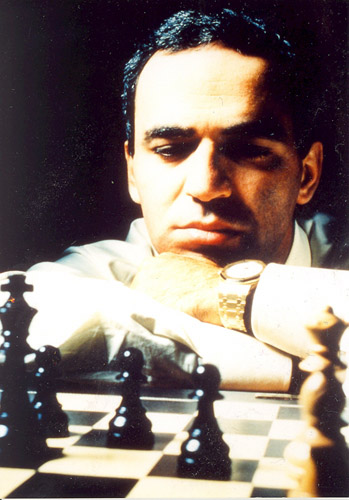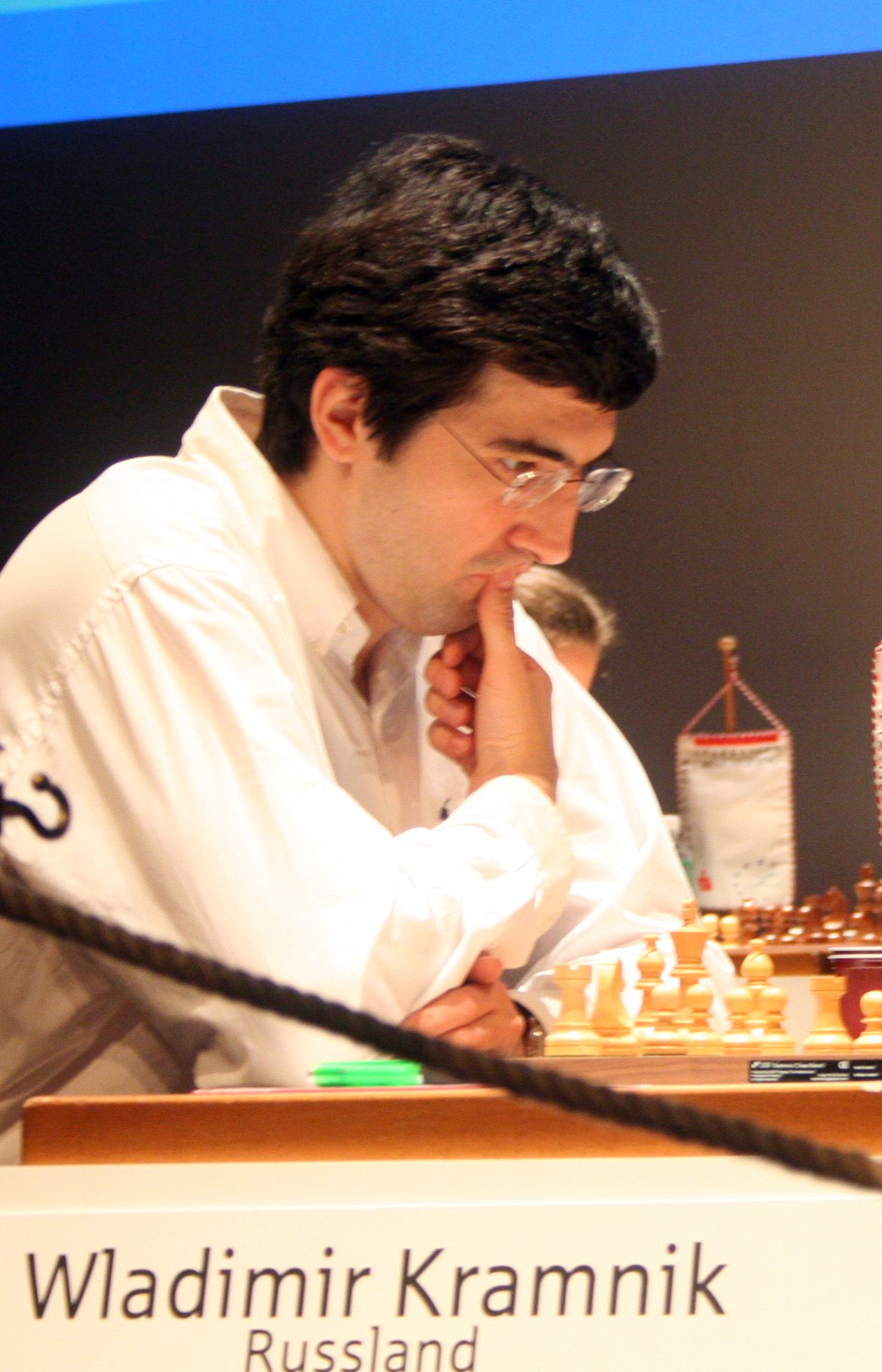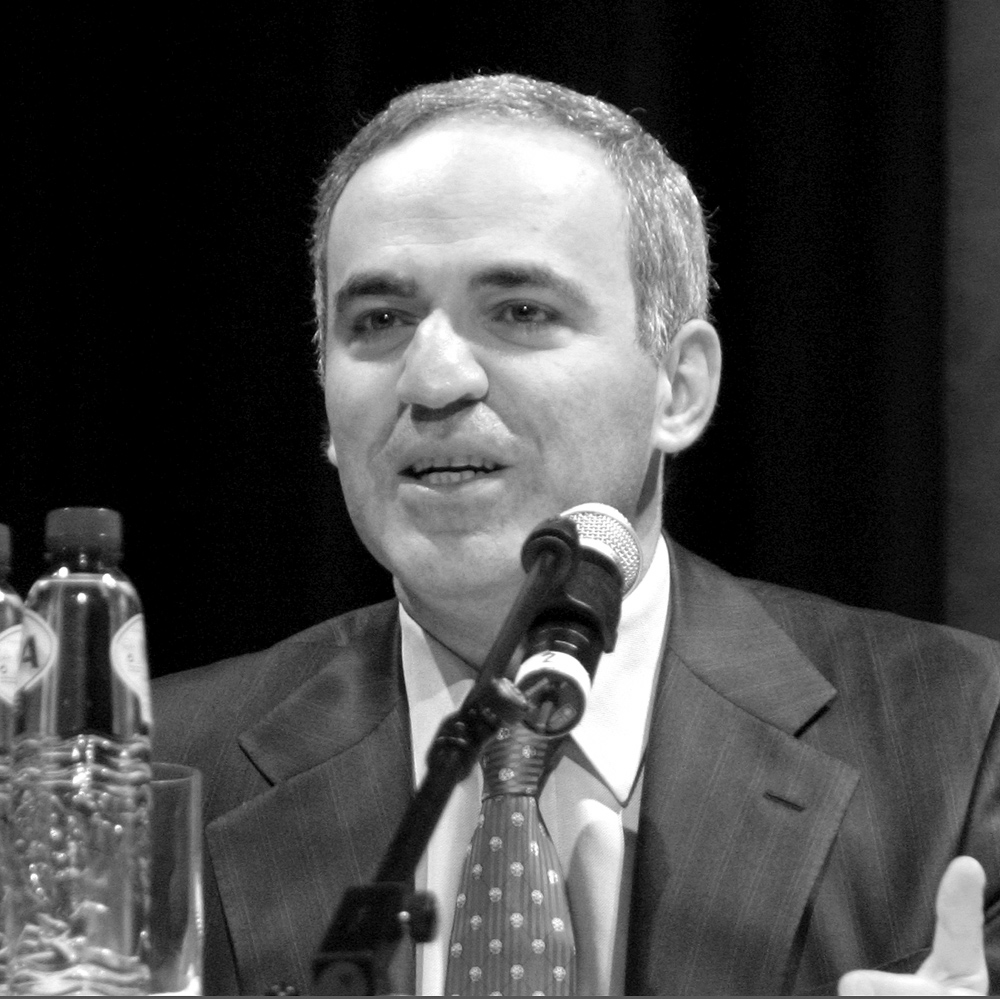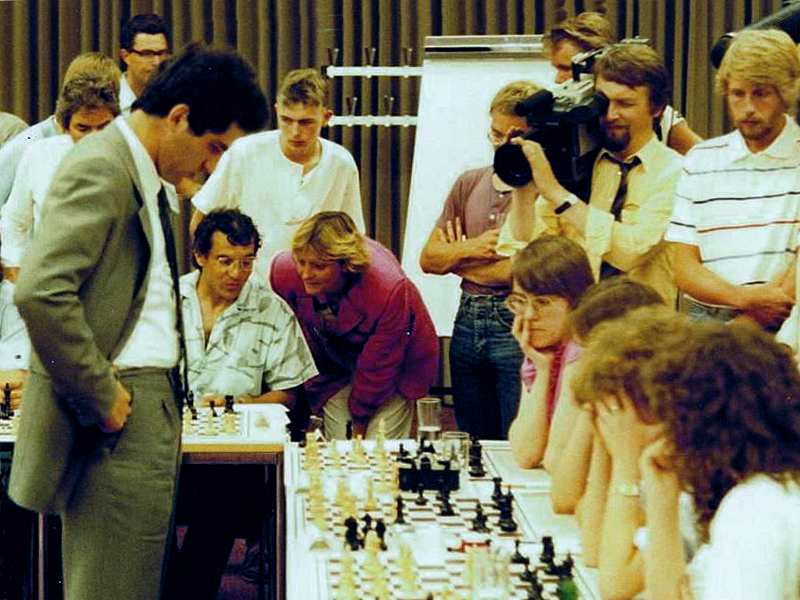|
Professional Chess Association
The Professional Chess Association (PCA), which existed between 1993 and 1996, was a rival organisation to FIDE, the international chess organization. The PCA was created in 1993 by Garry Kasparov and Nigel Short for the marketing and organization of their chess world championship. Formation In 1993, Nigel Short won the Candidates Tournament and so qualified as challenger to Garry Kasparov for the World Chess Championship. By FIDE regulation, the bids for where the World Championship final is played should have been decided by three parties – FIDE, the World Champion (Kasparov) and the Challenger (Short). According to Kasparov and Short, FIDE president Florencio Campomanes broke these rules by simply announcing the venue of the winning bid as being Manchester. FIDE derived a substantial part of its income from the prize fund of the World Championship. In response to this, Kasparov and Short formed the PCA, appointing Bob Rice as Commissioner. They played their world championship ... [...More Info...] [...Related Items...] OR: [Wikipedia] [Google] [Baidu] |
FIDE
The International Chess Federation or World Chess Federation, commonly referred to by its French acronym FIDE ( Fédération Internationale des Échecs), is an international organization based in Switzerland that connects the various national chess federations and acts as the governing body of international chess competition. FIDE was founded in Paris, France, on July 20, 1924.World Chess Federation FIDE (April 8, 2009). Retrieved on 2013-07-28. Its motto is ''Gens una sumus'', Latin for "We are one Family". In 1999, FIDE was recognized by the (IOC). As of May 2022, there are 200 [...More Info...] [...Related Items...] OR: [Wikipedia] [Google] [Baidu] |
PCA World Chess Championship 1995
The Classical World Chess Championship 1995, known at the time as the PCA World Chess Championship 1995, was held from September 10, 1995, to October 16, 1995, on the 107th floor of the South Tower of the World Trade Center in New York City. Garry Kasparov, the defending champion, played Viswanathan Anand, the challenger, in a twenty-game match. Kasparov won the match after eighteen games with four wins, one loss, and thirteen draws. Background In 1993, the reigning FIDE World Chess Champion, Garry Kasparov decided to split from FIDE because he felt the organisation was corrupt, and formed a rival organisation, the PCA (Professional Chess Association). In response, FIDE stripped Kasparov of his status and organised an event to determine a new champion — this event was won by Anatoly Karpov. Kasparov claimed that, as he had not been defeated by a challenger to his title in a match, and in fact had defeated the rightful challenger (Nigel Short in 1993), that he was still the re ... [...More Info...] [...Related Items...] OR: [Wikipedia] [Google] [Baidu] |
Veselin Topalov
Veselin Aleksandrov Topalov (pronounced ; bg, Весели́н Александров Топа́лов; born 15 March 1975) is a Bulgarian chess International Grandmaster, grandmaster and former FIDE World Chess Championship, World Chess Champion. Topalov became FIDE World Chess Champion by winning the FIDE World Chess Championship 2005. He lost his title in the World Chess Championship 2006 against Vladimir Kramnik. He challenged Viswanathan Anand at the World Chess Championship 2010, losing 6½–5½. He won the 2005 Chess Oscar. He was ranked List of FIDE chess world number ones, world number one from April 2006 to January 2007. He regained the top ranking in October 2008 until January 2010. His peak rating was 2816 in July 2015, placing him joint-tenth on the list of List of chess players by peak FIDE rating, highest FIDE-rated players of all time. Topalov has competed at nine Chess Olympiads (1994–2000, 2008–2016), winning board one gold in 2014 and scoring best over ... [...More Info...] [...Related Items...] OR: [Wikipedia] [Google] [Baidu] |
FIDE World Chess Championship 2006
The World Chess Championship 2006 was a match between Classical World Chess Champion Vladimir Kramnik, and FIDE World Chess Champion Veselin Topalov. The title of World Chess Champion had been split for 13 years. This match, played between September 23 and October 13, 2006, in Elista, Kalmykia, Russia, was to reunite the two World Chess Champion titles and produce an undisputed World Champion. Kramnik won the first two games, establishing a commanding lead. However, after Topalov's camp alleged that Kramnik was using computer assistance, Kramnik refused to play Game 5 and forfeited. He eventually agreed to play again under protest. Topalov won games 8 and 9, taking the lead for the first time, but Kramnik struck back with a win in game 10. The remaining games were drawn, sending the match to a tiebreak. After a draw in the first game and a win apiece in the second and third games, Kramnik won the fourth game after Topalov blundered, to win the tiebreak and the match, becoming the ... [...More Info...] [...Related Items...] OR: [Wikipedia] [Google] [Baidu] |
Classical World Chess Championship 2004
The Classical World Chess Championship 2004 was held from September 25, 2004, to October 18, 2004, in Brissago, Switzerland. Vladimir Kramnik, the defending champion, played Peter Leko, the challenger, in a fourteen-game match. The match ended 7–7, each player scoring two wins. Kramnik retained his title under the rules of the match. Background Garry Kasparov's split from FIDE in 1993 resulted in two lines of world chess champions. There was the "Classical" world champion, the title that passes on to a player only when he beats the previous world champion. This was held by Kasparov, until he was defeated by Kramnik in the Classical World Chess Championship 2000. There was also the "Official" FIDE world champion who, at the time of this match, was Rustam Kasimdzhanov. The split World Champion title led to calls for a reunification. After negotiations all parties agreed to the "Prague Agreement", whereby the winner of this match (the "Classical" World Champion) would play the winn ... [...More Info...] [...Related Items...] OR: [Wikipedia] [Google] [Baidu] |
Classical World Chess Championship 2000
The Classical World Chess Championship 2000, known at the time as the Braingames World Chess Championships, was held from 8 October 2000 – 4 November 2000 in London, United Kingdom. Garry Kasparov, the defending champion, played Vladimir Kramnik. The match was played in a best-of-16-games format, with Kramnik defeating the heavily favoured Kasparov. Kramnik won the match with two wins, 13 draws and no losses.The Week in Chess 313 6 November 2000 To the supporters of the lineal world championship, Kramnik became the 14th world chess champion. Background Following the split in the in 1993, there were two rival world titles: the official < ...[...More Info...] [...Related Items...] OR: [Wikipedia] [Google] [Baidu] |
Vladimir Kramnik
Vladimir Borisovich Kramnik (russian: Влади́мир Бори́сович Кра́мник; born 25 June 1975) is a Russian chess grandmaster. He was the Classical World Chess Champion from 2000 to 2006, and the undisputed World Chess Champion from 2006 to 2007. He has won three team gold medals and three individual medals at Chess Olympiads. In 2000, Kramnik defeated Garry Kasparov and became the Classical World Chess Champion. He defended his title in 2004 against Peter Leko, and defeated the reigning FIDE World Champion Veselin Topalov in a unification match in 2006. As a result, Kramnik became the first undisputed World Champion, holding both the FIDE and Classical titles, since Kasparov split from FIDE in 1993. In 2007, Kramnik lost the title to Viswanathan Anand, who won the World Chess Championship 2007 tournament ahead of Kramnik. He challenged Anand at the World Chess Championship 2008 to regain his title, but lost. Nonetheless, he remained a top player; he ... [...More Info...] [...Related Items...] OR: [Wikipedia] [Google] [Baidu] |
Google Groups
Google Groups is a service from Google that provides discussion groups for people sharing common interests. The Groups service also provides a gateway to Usenet newsgroups via a shared user interface. Google Groups became operational in February 2001, following Google's acquisition of Deja's Usenet archive. Deja News had been operational since March 1995. Google Groups allows any user to freely conduct and access threaded discussions, via either a web interface or e-mail. There are at least two kinds of discussion group. The first kind are forums specific to Google Groups, which act more like mailing lists. The second kind are Usenet groups, accessible by NNTP, for which Google Groups acts as gateway and unofficial archive. The Google Groups archive of Usenet newsgroup postings dates back to 1981. Through the Google Groups user interface, users can read and post to Usenet groups. In addition to accessing Google and Usenet groups, registered users can also set up mailing list ar ... [...More Info...] [...Related Items...] OR: [Wikipedia] [Google] [Baidu] |
Chicago Tribune
The ''Chicago Tribune'' is a daily newspaper based in Chicago, Illinois, United States, owned by Tribune Publishing. Founded in 1847, and formerly self-styled as the "World's Greatest Newspaper" (a slogan for which WGN radio and television are named), it remains the most-read daily newspaper in the Chicago metropolitan area and the Great Lakes region. It had the sixth-highest circulation for American newspapers in 2017. In the 1850s, under Joseph Medill, the ''Chicago Tribune'' became closely associated with the Illinois politician Abraham Lincoln, and the Republican Party's progressive wing. In the 20th century under Medill's grandson, Robert R. McCormick, it achieved a reputation as a crusading paper with a decidedly more American-conservative anti-New Deal outlook, and its writing reached other markets through family and corporate relationships at the ''New York Daily News'' and the ''Washington Times-Herald.'' The 1960s saw its corporate parent owner, Tribune Company, rea ... [...More Info...] [...Related Items...] OR: [Wikipedia] [Google] [Baidu] |
Usenet
Usenet () is a worldwide distributed discussion system available on computers. It was developed from the general-purpose Unix-to-Unix Copy (UUCP) dial-up network architecture. Tom Truscott and Jim Ellis conceived the idea in 1979, and it was established in 1980.''From Usenet to CoWebs: interacting with social information spaces'', Christopher Lueg, Danyel Fisher, Springer (2003), , Users read and post messages (called ''articles'' or ''posts'', and collectively termed ''news'') to one or more topic categories, known as newsgroups. Usenet resembles a bulletin board system (BBS) in many respects and is the precursor to the Internet forums that have become widely used. Discussions are threaded, as with web forums and BBSs, though posts are stored on the server sequentially.The jargon file v4.4.7 , Jargon File Archive. [...More Info...] [...Related Items...] OR: [Wikipedia] [Google] [Baidu] |
Deep Blue (chess Computer)
Deep Blue was a chess-playing expert system run on a unique purpose-built IBM supercomputer. It was the first computer to win a game, and the first to win a match, against a reigning world champion under regular time controls. Development began in 1985 at Carnegie Mellon University under the name ChipTest. It then moved to IBM, where it was first renamed Deep Thought, then again in 1989 to Deep Blue. It first played world champion Garry Kasparov in a six-game match in 1996, where it lost four games to two. It was upgraded in 1997 and in a six-game re-match, it defeated Kasparov by winning three games and drawing one. Deep Blue's victory is considered a milestone in the history of artificial intelligence and has been the subject of several books and films. History While a doctoral student at Carnegie Mellon University, Feng-hsiung Hsu began development of a chess-playing supercomputer under the name ChipTest. The machine won the North American Computer Chess Champ ... [...More Info...] [...Related Items...] OR: [Wikipedia] [Google] [Baidu] |
Deep Blue Versus Garry Kasparov
Deep Blue versus Garry Kasparov was a pair of six-game chess matches between the world chess champion Garry Kasparov and an IBM supercomputer called Deep Blue. The first match was played in Philadelphia in 1996 and won by Kasparov by 4–2. A rematch was played in New York City in 1997 and won by Deep Blue by 3½–2½. The second match was the first defeat of a reigning world chess champion by a computer under tournament conditions, and was the subject of a documentary film, '' Game Over: Kasparov and the Machine''. Symbolic significance Deep Blue's win was seen as symbolically significant, a sign that artificial intelligence was catching up to human intelligence, and could defeat one of humanity's great intellectual champions. Later analysis tended to play down Kasparov's loss as a result of uncharacteristically bad play on Kasparov's part, and play down the intellectual value of chess as a game that can be defeated by brute force. In December 2016, discussing the match in ... [...More Info...] [...Related Items...] OR: [Wikipedia] [Google] [Baidu] |

.jpg)




